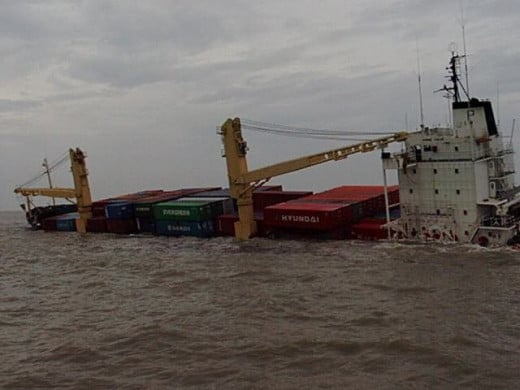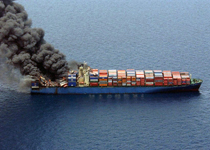What to do in cases of General Average


GENERAL AVERAGE SITUATIONS & EXPLANATIONS
There are many aspects and terms of marine insurance claims which can be quite confusing to the layman. Often new Shippers / consignees find themselves perplexed with the various documentation / formalities to be completed for situations where there cargo is in peril. One of those dreaded situations is a declaration of General Average by the vessel that is carrying their cargo.
Suddenly the merchant is faced with a notice which asks him to have forms filled up/ deposits made and so on so forth and in most cases his cargo is delayed / fate of his cargo is unclear.
To make General Average easy to understand let us take the example of a case where there is a fire in a hold of the ship carrying cargo. Now unless the fire is put out all involved i.e. vessel, cargo and crew will suffer . The only way to save all would be to put out the fire by hosepipes to pour water / take other necessary measures to put out the fire. However this could cause additional damages to cargo or even to cargo which was unaffected by the fire.
The usual reaction in such cases may be “Why should I pay? My cargo was not affected?” However the history of General Average can be traced back in time to the exigencies of hazards faced at sea, where there is often very little time to determine whose cargo was being jettisoned and so forth. To avoid disputes which could result in wastage of valuable time, there arose the practice whereby all merchants whose cargo landed safely would be called on to contribute a portion, based upon a share or percentage, to the merchant or merchants whose goods had been tossed overboard to avert imminent peril.
To declare a General average three elements must be present:R
1. A common danger: a danger in which vessel, cargo and crew all participate; a danger imminent and apparently 'inevitable,' except by voluntarily incurring the loss of a portion of the whole to save the remainder."
2. There must be a voluntary jettison, or sacrifice of some portion of the joint concern for the purpose of avoiding this imminent peril, a transfer of the peril from the whole to a particular portion of the whole.
3. This attempt to avoid the imminent common peril must be successful.
Therefore going back to our example of fire , it would not be General Average situation if some goods got destroyed in the fire or if the vessel was damaged due to fire. Only if there was some voluntary sacrifice like throwing away (jettison) of the burning goods / damage to otherwise sound goods in an effort to put out the fire, there would be general average.
As per the law of General Average all parties in a sea venture proportionally share any losses resulting from a voluntary sacrifice of part of the ship or cargo to save the hole in an emergency. This sharing is known as contribution.
A contribution by all parties in a sea voyage to make good loss sustained by one / several of them on account of sacrifices voluntarily made of part of the ship and/or cargo to save the venture from an impending peril, or for extraordinary expenses necessarily incurred by one or more of the interests in the enterprise. Some degree of success must occur, as if nothing could be saved, there would be nothing to contribute to General Average.
Ship-owners have maritime lien on the cargo for its pro-rata share of the total amount to be made good in General Average. A lien is the right of the creditor to retain the properties of his debtor until the debt is paid.
When general Average has been declared, before cargo is released by the carrier/ ship-owner to the cargo owner, a General Average Bond will have to be signed and a cash deposit based on a percentage of the invoice value estimated to cover General Average expenditure will have to be paid. However in most cases the Carrier / Ship-owner will accept General Average Guarantee signed by the Insurance company who has insured the cargo in lieu of the cash deposit.
Therefore as soon as General Average notice is received by the cargo owners, they should contact the Insurance company who have insured their goods and submit the following documents.
- Copy of the completed General Average Bond
- Format for General Average Guarantee form provided by Ship owners or their General Average Adjusters
- Any other correspondence received from the Ship owners or their General Average Adjusters
- Copy of the Insurance Certificate / Policy , Commercial Invoice & Bill of lading
The situation has changed a lot from those ancient times when the proportion of loss to be borne by different merchants could be worked out by simple calculations. Nowadays a General Average Adjustment entails complex calculations for which the ship owners / carriers rely on word renowned Adjustment companies.



